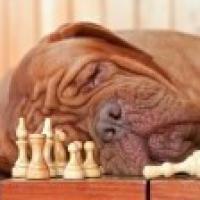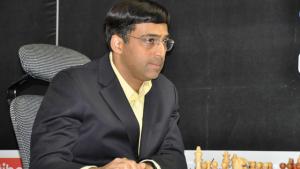
Sleepless at the Chessboard
According to researcher Wilse Webb of the University of Florida, “We don’t find that the capacity for things like math or playing chess suffers [due to lack of sleep]. What’s lost is willingness; you would prefer to be asleep. You don’t make errors of commission, but omission.”
I read that quote in a sort of coffee-table book about insomnia called Hello Midnight by Deborah Bishop and David Levy (note that this is not the same guy as the Scottish IM with the same name). Interestingly, I read that quote in the evening while desperately trying to sleep, because the next day I had a game at nine in the morning.
I was not sure I really believed it. I have lots of experience playing chess in a state of sleep deprivation, which is why I decided to write an article on this topic. Quite often during tournaments I am unable to sleep at all. This is particularly the case when there are two rounds a day. In the typical American tournament there are two rounds a day of potentially six-hour games. Almost immediately after finishing your game, you have to go to sleep and wake up the next morning. I have found that when there is one round the next day, I have much less trouble sleeping, because there is less pressure to sleep. But if you have a round at 9 AM or 10 AM, you need to sleep, and this need makes it much harder to do so.
Sleep is one of a few activities which require a lack of intent. You cannot will yourself to sleep. In fact, trying to do so will only prevent it. Having additionally just finished a tense and stressful game makes it even harder to sleep. Unlike physical sports, which will help you to sleep better, the tiredness chess produces is more of a “wired” tiredness, where you don’t feel like sleeping.
Is what Wilse Webb said true? Are you able to play chess on no sleep? I assumed that whatever study those sleep researchers did on chess playing ability probably had no relation to real tournament conditions or master chess. The chess world is a hidden world, and even those who have been around it for a while still don’t really understand what is going on. It is hard for me to imagine that some outsiders, such as sleep researchers, could make a study that would incorporate the real chess world.
The problem is not that you cannot think about chess, it is that (as Webb said) your willingness to do so goes away. And you cannot fight your mind’s unwillingness. For normal people, you can just decline to play chess! But if you are in a tournament, you cannot. My experience is that you can make moves on intuition without so much difficulty, but when calculating variations your mind simply fights you. It wants to wander elsewhere. Additionally, sleep deprivation (in my experience) creates a terrible feeling of nervousness.
In my last tournament in the U.S., the Eastern Open, I needed to play the rapid schedule because a huge snowstorm prevented me from arriving on time. This schedule ended around 1 AM, and the next morning the round was at 10 AM. By the time I ate “dinner” and reached my hotel it was after 2 AM, and I would have to get up at 8:30 (I needed time to negotiate big transportation problems from my hotel). As the time ticked away, I was unable to sleep. Sometime around 7 AM, after not sleeping a second, I decided I would call the organizer and take a bye in the next round. After that I fell asleep for an hour or so.
When I woke up, against my better judgment I decided to play. I did not have a great score since the rapid schedule was very strong (I had beaten GM Paragua but lost to GM Ivanov), so I felt I needed to play. I made it to the tournament hall and saw that my opponent would be IM Raymond Kaufman. I had a score of 8.5/9 against him so I was happy with the pairing. Let’s now see the effects of sleep deprivation:
It turned out that I was capable of playing decent chess when attention was not required. Your intuition and positional judgment remains intact even when sleep-deprived. But when calculation of variations appeared, I could not make myself concentrate. And so a spectacular collapse happened.
What do you do if you have to play chess after not sleeping? It is hard to give advice – best is simply to get enough sleep. But that is not always possible.
I would recommend that you toss cold water on your face frequently. This is a well known advice which I think is quite helpful. Recently I saw one strong grandmaster doing that throughout an entire tournament. I doubt he was sleep-deprived (it was one round a day) but it might help your alertness anyway.
Also important is confidence. It is actually possible to play with little sleep. Last fall I had terrible results, and part of the problem was my insomnia. But this spring, I had one tournament where, after an entirely sleepless night, I defeated a strong IM and a GM, on the same day. This gave me some sense that it is actually possible to play without sleeping – a precedent, if you will.
And more recently I played in a tournament in Romania. On the night before the day when there were two games, I couldn’t sleep at all. But I knew that it was possible for me to play in this condition, because I had done it before. As a result, I was able to win against GM Ciprian Nanu.
A major difference is that if you miss one night of sleep, that might not be so bad. The problem is when a sleep-deficit builds up. If you sleep badly for several nights in a row, and then miss a night of sleep, then it is a problem. This was typical in the big tournaments in the U.S. where the grueling schedule, with limited time for sleep, would extend for four or five days. By the end of these tournaments I was barely conscious.
How to fall asleep? This of course is a tough question. Whole institutes are devoted to this. Well, the advice I could give is to bring a boring book to the tournament, and remember that if you don’t sleep, it’s not the end of the world!






